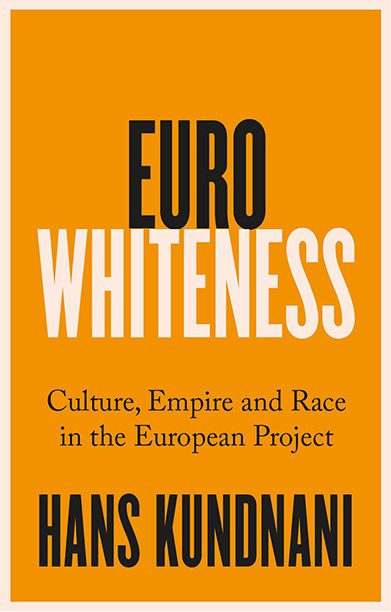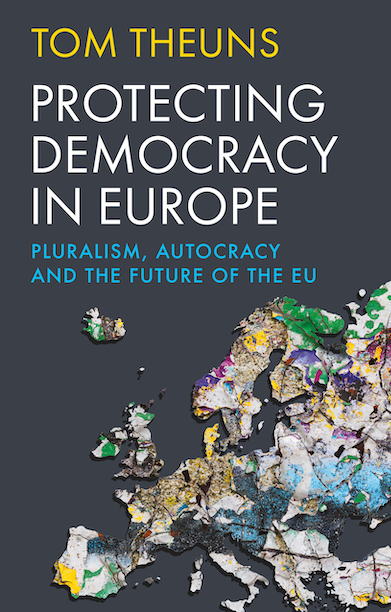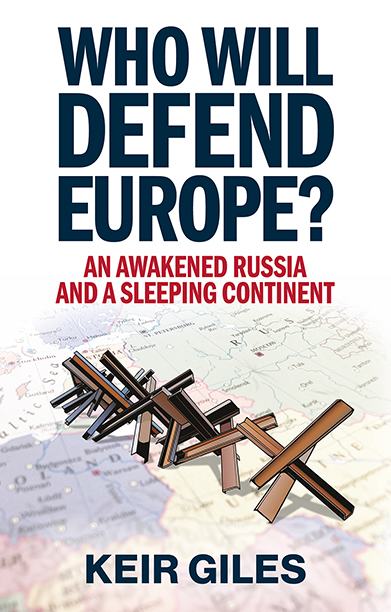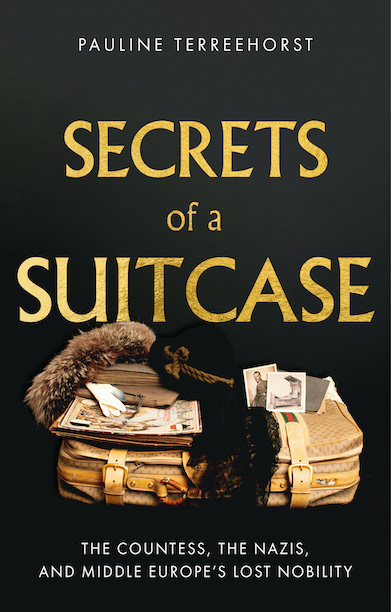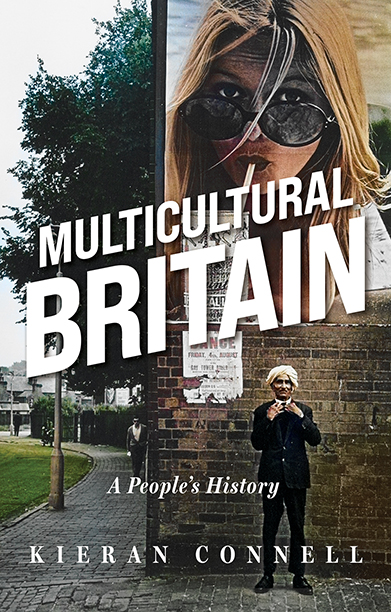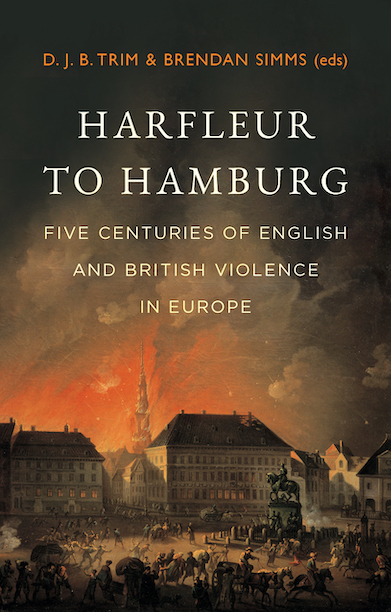Eurowhiteness
Culture, Empire and Race in the European Project
An alternative account of the EU as a racialised project.
Description
The European Union is often seen as a cosmopolitan rejection of violent nationalism. Yet the idea of Europe has a long, problematic history—in medieval times, it was synonymous with Christianity; in the modern era, it became associated with ‘whiteness’.
Eurowhiteness exposes the EU as a vehicle for imperial amnesia. Narratives of European integration emphasise the lessons of war and the Holocaust, but not the lessons of colonial history. The EU is about power as much as peace—and civic ideas of Europe are being displaced by ethnic and cultural ones.
Since the 2015 refugee crisis, whiteness has become even more central to European identity—a troubling new turn in Europe’s long civilisational project. It is time to confront the relationship between ideas of Europe and ideas of race.
Reviews
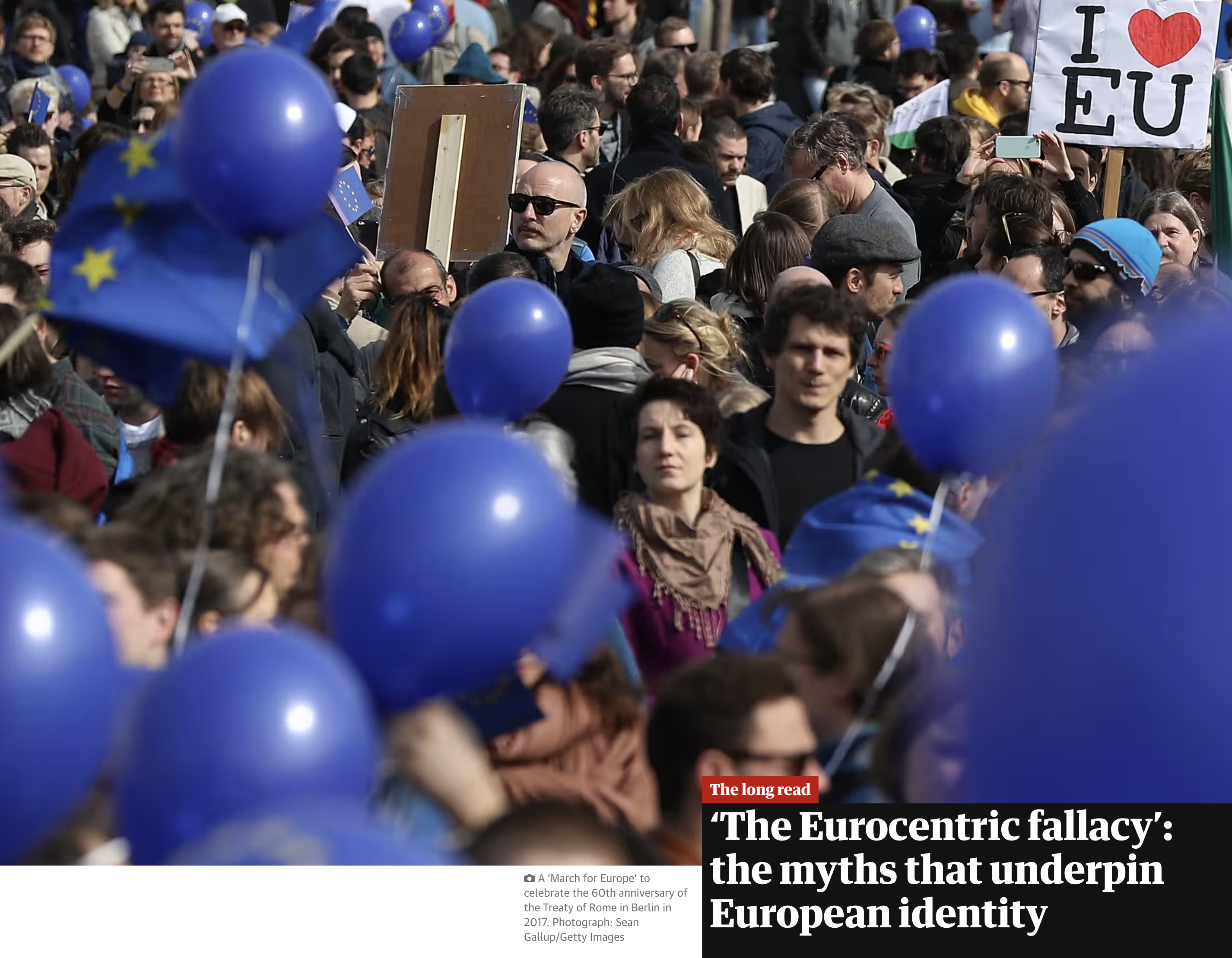
‘The EU likes to celebrate itself as a place where borders are soft and ‘regionalism’ creates diversity and openness. But just as much as any powerful nation, Europe defines itself against the rest of the world.’ — read an extract from Eurowhiteness in The Guardian here.
‘Hans Kundnani has been on an intellectual journey over several years, close to the heart of the European mythmaking machine… What has emerged from this slow disenchantment is a clear, elegantly written polemic. Some people won’t like it, which is probably why they should read it. … Kundnani’s book is more than an insightful one, it is a necessary one.’ — Financial Times
‘[A] short and punchy book [that] exposes the often hidden and frequently denied foundations of European integration.’ — The Irish Times
‘[A] well-researched, interesting little book.’ — New Statesman
‘[Eurowhiteness] decries the continent’s subtler form of chauvinism. … By highlighting the way colonial horrors were memory-holed, Mr Kundnani rightly points out that other sins were mostly ignored.’ — The Economist
‘A timely intervention.’ —TLS
‘Kundnani is right that some Europeans… cling to the misguided idealist belief that the EU should be hailed as a “universal model” that can eradicate genocide, war, colonialism, human rights abuse, and other global problems. This book remains a useful counterpoint to such complacency by showing how the world’s most peaceful, egalitarian, green, and increasingly diverse continent is still far from utopia.’ — Foreign Affairs
‘Kundnani finds a way to provide not only a succinct overview of the existing literature on nationalism, but he also describes… the on-going debates in the European identity scholarship. He takes the necessary leap from there and dives right into the emerging scholarship on post-colonial theories and decolonizing approaches, giving ample credit to those who have paved the way for him.’ — EuropeNow
‘A trenchant analysis of the European project.’ — Australian Review of Books
‘[A] stimulating new book … [an] illuminating discussion of (Western) Europe and imperialism. … Kundnani articulates justified criticisms of West European parochialism.’ — CEU Review of Books
‘[Eurowhiteness] offers an intellectually stimulating and policy-relevant departing point to any discussion about the future of Europe.’ — Informed Comment
‘Deeply honest and kind.’ — International Affairs
‘Kundnani’s widely debated book has already become a springboard for a discussion about today’s EU and for rethinking our ways of writing the history of the process that created it.’ — Klaus Kiran Patel, H-Soz-Kult, Historisches Seminar, Ludwig-Maximilians-Universität München
‘A fascinating book challenging the myths surrounding the EU. For some, this will be uncomfortable reading.’ — Anand Menon, Director of UK in a Changing Europe
‘Kundnani shows that ideas of race are central to European thinking about politics. In the shadow of Ukraine, it’s important for us to face this truth.’ — Kwame Anthony Appiah, author of The Lies That Bind: Rethinking Identity
‘A bracing challenge to the myths underlying the “European Project”, and to the hollowness of contemporary cosmopolitanism.’ — Kenan Malik, author of Not So Black and White
‘Kundnani asks some hard and important questions about the EU’s history, and his answers illuminate a great deal about European self-understanding.’ — Helen Thompson, co-host of Talking Politics
‘Elegantly logical—and sure to challenge many readers’ assumptions.’ — Brendan Simms, author of Europe: The Struggle for Supremacy and Britain’s Europe
‘Kundnani deftly bursts the bubble of those who idealize the EU as a cosmopolitan project.’ — Jacobin
‘Fresh and exciting perspectives like Kundnani’s are hard to come by.’ — Engelsberg Ideas
‘Many of [Kundnani’s] points… [are] instructive, useful and true.’ — Martin Sandbu, Financial Times
‘The most intriguing section of Eurowhiteness is Kundnani’s discussion of Brexit.’ — Areo Magazine
‘A game changer – the first book seriously to explore the racial and ethnic motivations internal to the process of European integration and the formation of the EU.’ — Simon Glendinning, Head of the European Institute and Professor in European Philosophy, London School of Economics
Author(s)

Hans Kundnani is an associate fellow and former Europe programme director at Chatham House, and the author of Utopia or Auschwitz; The Paradox of German Power; and Eurowhiteness, all published by Hurst. Hans writes regularly for The Observer, The Guardian, The New Statesman and Foreign Affairs, among others.
